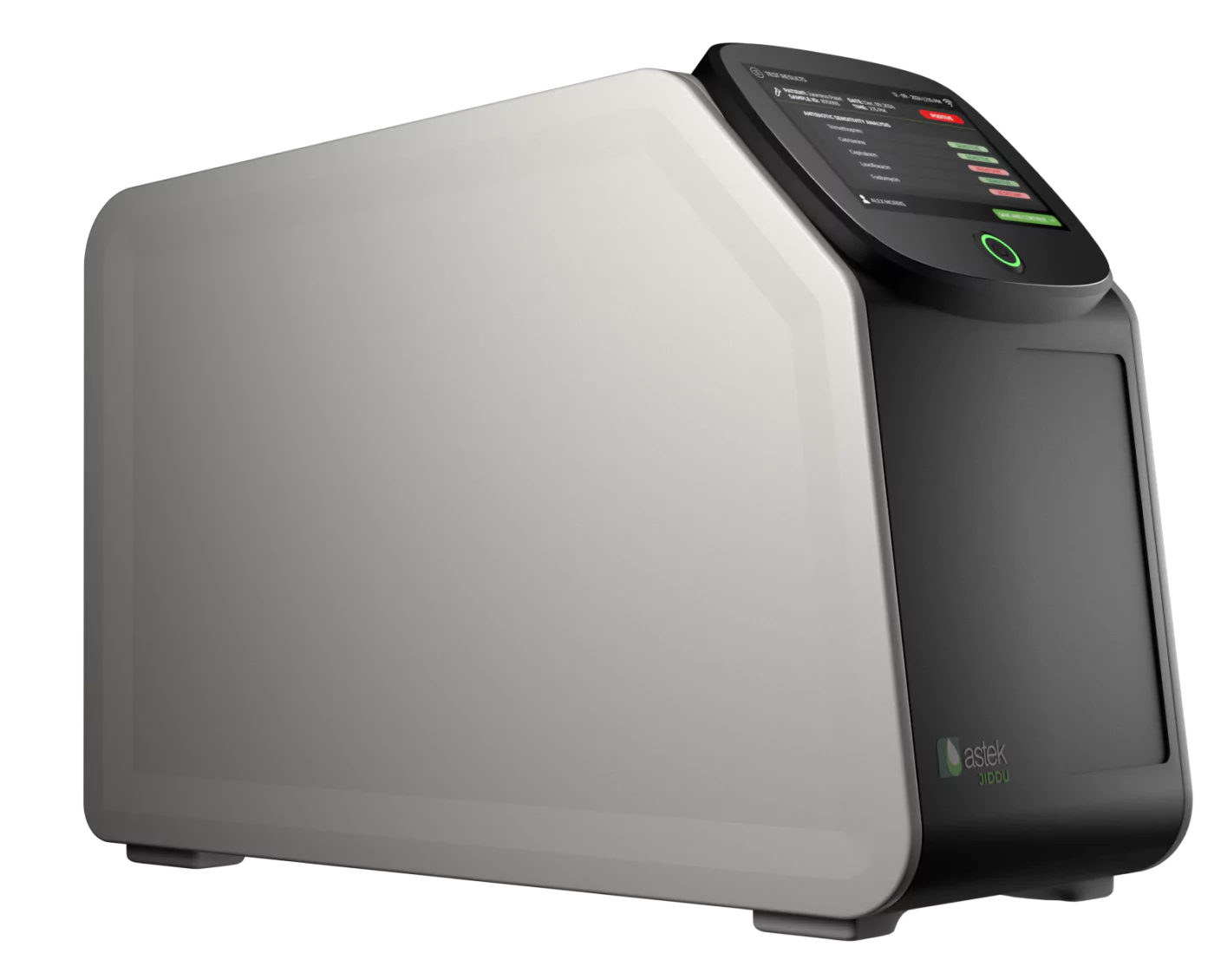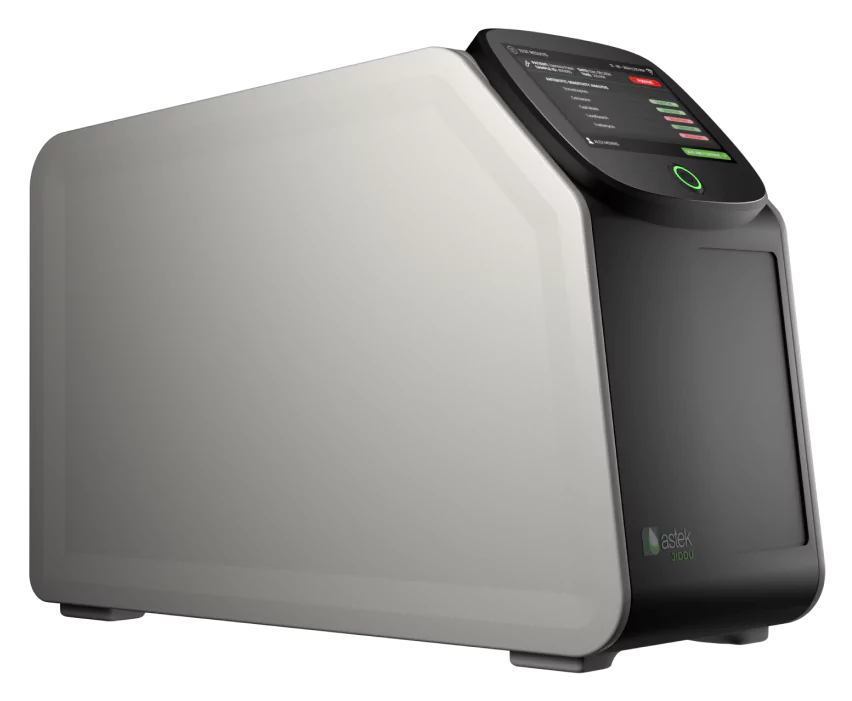Grand vision
Focused on developing a multipurpose diagnostic platform
Astek Diagnostics has prioritized going to market first with a urine-based test with clinical trials projected to be completed by January 2025.
Our vision is to develop the JIDDU system into a multipurpose diagnostic platform which is able to confirm bacterial infections and assess antibiotic sensitivity across 4 sample types: urine, CSF, effluent, and blood.
Present
Urine
(Current focus)
2026
CSF
(In development)
2027
Effluent
(In development)
2028
Blood
(In development)
CSF
Expected FDA approval: 2026
The traditional two-day wait for culture results is perilous, particularly in meningitis cases—a severe inflammation of the brain and spinal cord's protective membranes. Annually, meningitis affects 600 to 1,000 individuals in the US, with a 10-15% fatality rate and about 20% of survivors enduring permanent disabilities like brain damage or hearing loss.
In 2015, there were 8.7 million reported cases globally with 379,000 deaths. Even with prompt diagnosis and treatment, 5% to 10% of patients die within 24 to 48 hours post symptom onset. Immediate treatment with antibiotics is crucial for recovery and averting severe complications.
The JIDDU platform, offering 1-hour antibiotic sensitivity testing, could dramatically shorten this critical time frame, thus enabling timely, effective treatment, and potentially increasing survival rates, and improving patient outcomes in meningitis and other severe infections.
Meningitis confirmation and antibiotic sensitivity in 1 hour
Proof of concept data accumulated (12 samples)
Active Henry Jackson Foundation grant focused on advancing R&D
Effluent
Expected FDA approval: 2027
In the US, over 6.5 million individuals are impacted by infected wounds, a figure likely to rise due to antibiotic resistance. Furthermore, surgical site infections (SSIs) present another significant health challenge with a 1-2% incidence rate across all surgical procedures, translating to 1 in 24 surgical patients experiencing an SSI.
Astek Diagnostics’ work in wound care management aims to address this issue by expediting the identification of bacterial infections and determining antibiotic sensitivity. The JIDDU system significantly reduces the time between wound swabbing and effective antibiotic treatment initiation. This swift action is pivotal in minimizing the severity of wound infections, including SSIs, and tackling antibiotic resistance, thus delivering better wound care outcomes.
Wound infection (incl. SSI) confirmation and antibiotic sensitivity in 1 hour
Proof of concept data accumulated (12 samples)
Pending DOD contract focused on advancing R&D
Blood
Expected FDA approval: 2028
1.7 million Americans encounter sepsis each year and 270,000 of those cases result in fatalities. Most of those outcomes are due to delayed diagnoses and incorrect antibiotic prescriptions. Around 22% of patients receive ineffective antibiotics, given the standard immediate broad-spectrum antibiotic administration.
Current diagnostic methods like blood cultures entail prolonged waiting times, unsuitable for high-mortality conditions like sepsis. Astek Diagnostics addresses this with a novel diagnostic assay and an automated microfluidic platform which provides a bacteremia indication and patient-specific antibiotic recommendations within 1 hour. This innovation significantly reduces diagnostic time, thus ensuring timely and effective initiation of antibiotic treatment. The JIDDU system is poised to disrupt the sepsis diagnostic market, given its potential to reduce sepsis-related mortality rates.









